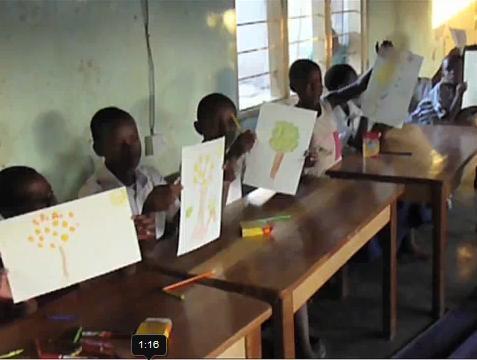POFO: Positive Outcomes for Orphans

Topics:
Start Date:
End Date:
-
Ongoing
POFO: Positive Outcomes for Orphans
Positive Outcomes for Orphans (POFO) is a longitudinal, multi-country study tracking the experiences of 3,000 orphans and separated children (OSC) and their caregivers in five low and middle-income countries. This study began following the POFO cohort in 2006, and in 2010 the grant for "POFO II" was awarded, which allowed the study to continue interviewing the POFO participants as they transition through adolescence and early adulthood. The focus of this longitudinal research of children starting ages 6 to 12 is to examine the influence of life events, placement, caregiver characteristics, and cultural setting on the children's: * behavioral and emotional adjustment; * learning and development; * and health outcomes.
The following describes POFO achievements in 2014: * Round 10 data collection is nearing completion. * Additional papers have been published: Whetten K, Ostermann J, Pence B, et al. Three-Year Change in the Wellbeing of Orphaned and Separated Children in Institutional and Family-Based Care Settings in Five Low- and Middle-Income Countries. PLoS ONE. 2014 Aug 14. DOI: 10.1371/journal.pone.0104872 Escueta M, Whetten K, Ostermann J, O'Donnell K. Adverse Childhood Experiences, Psychosocial Well-being and Cognitive Development among Orphans and Abandoned Children in Five Low Income Countries. BMC International Health and Human Rights. 2014, 14:6 doi:10.1186/1472-698X-14-6. Rajana, D, Shirey K, Ostermann J, Whetten R, O'Donnell K, Whetten K. Child and caregiver concordance of potentially traumatic events experienced by orphaned and abandoned children. Vulnerable Children and Youth Studies. 2014;9(3):220-233. * As of December 2014, study sites are preparing Round 11 data collection. * For ongoing activities and a list of all publications see pofostudy.org
The study can tell us much about the lives being currently lived by orphaned and separated children (OSC) in less wealthy nations most affected by the new OSC epidemic and what characteristics are associated with better outcomes for the children. The ultimate goal of the POFO research study is to provide additional evidence to local communities, policymakers, and funding agencies regarding a range of feasible care options for OAC ages 6 and above in less wealthy nations.
Last updated on January 10, 2018